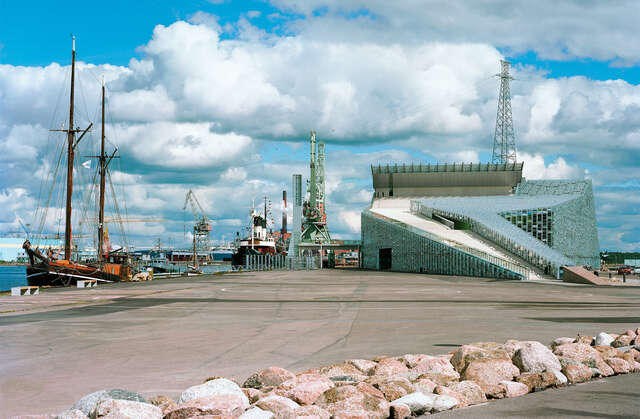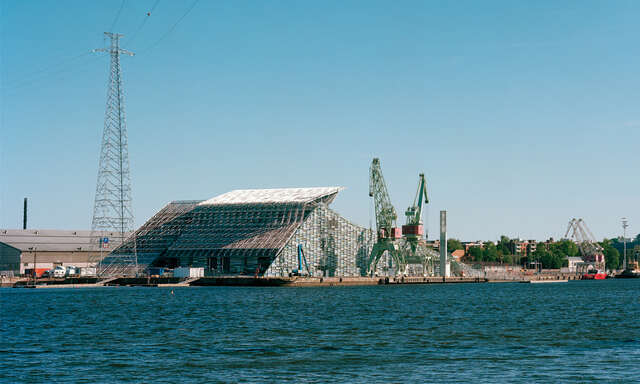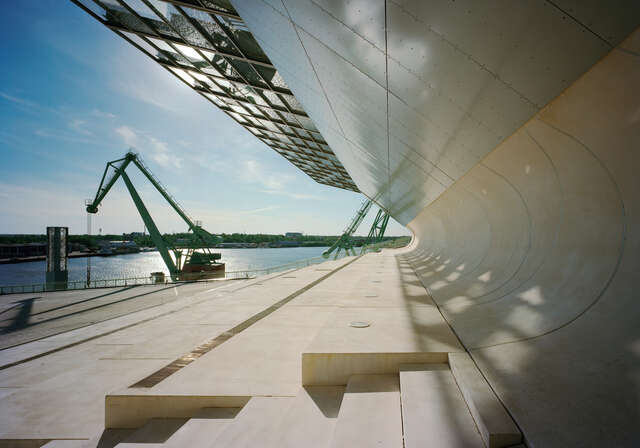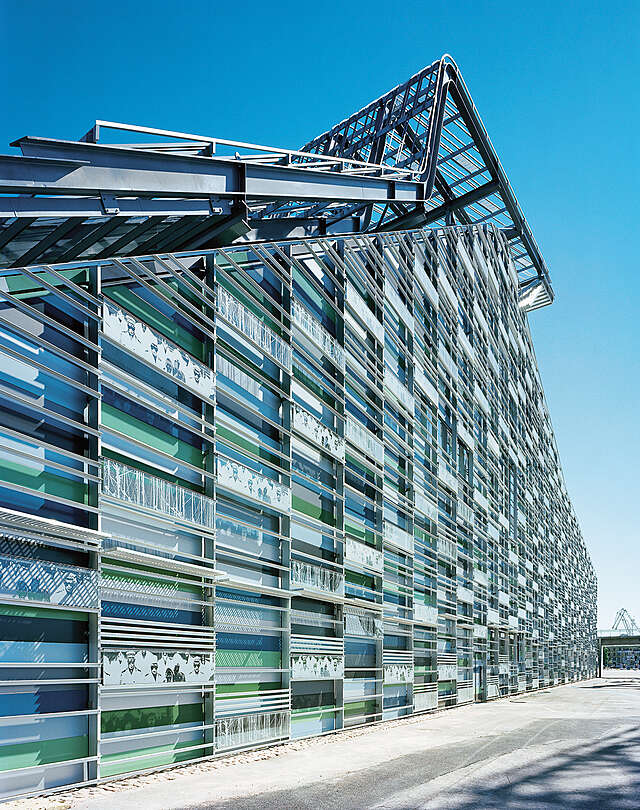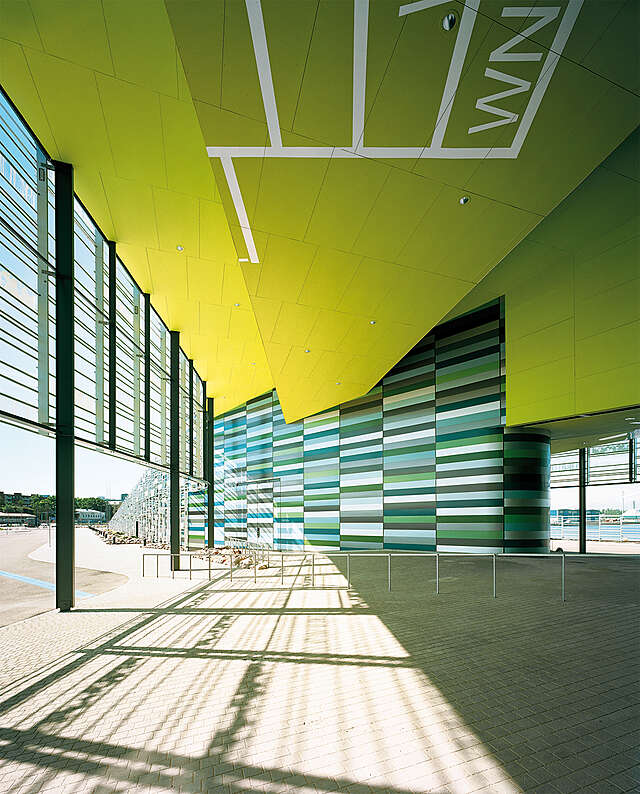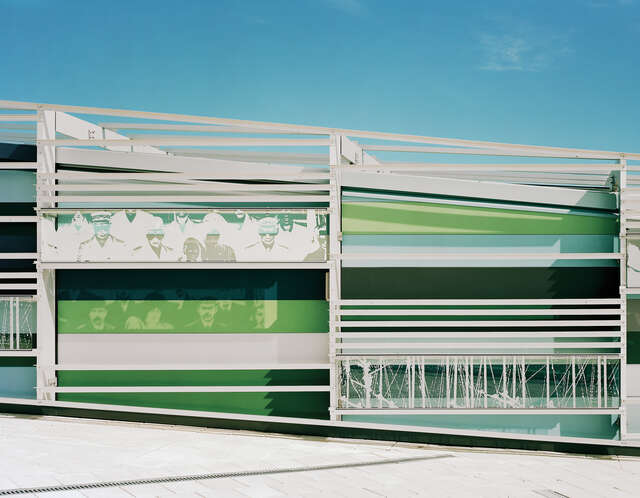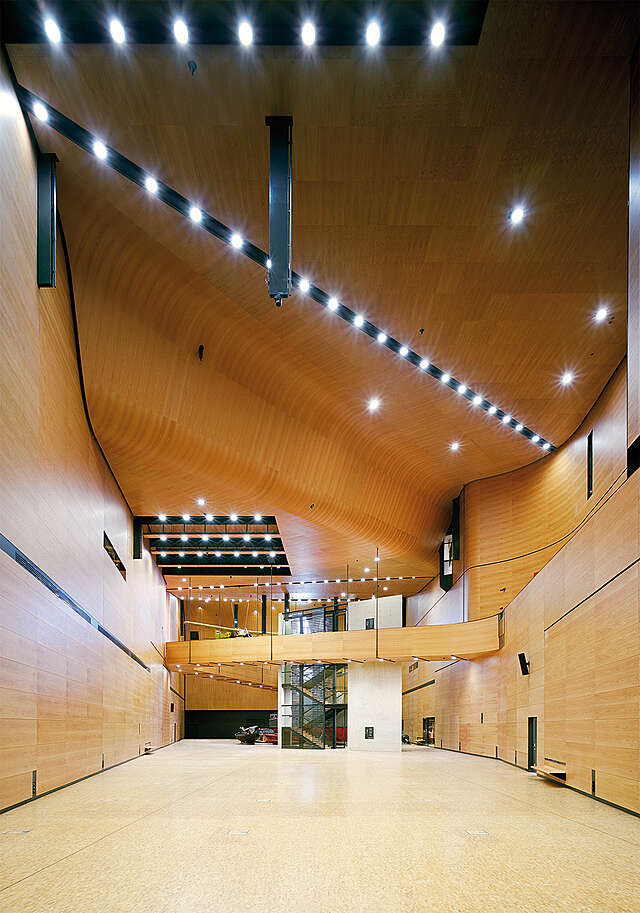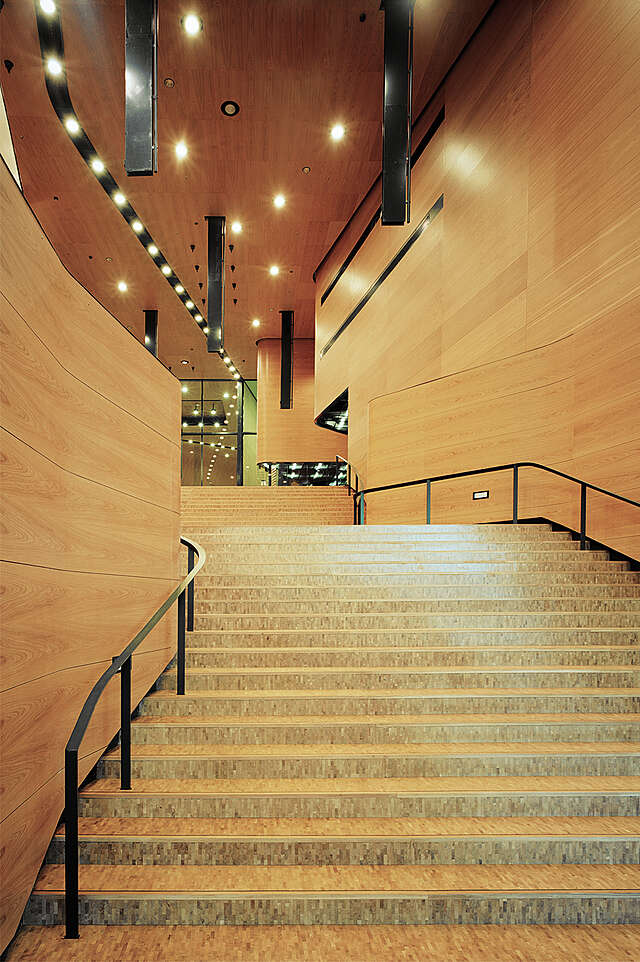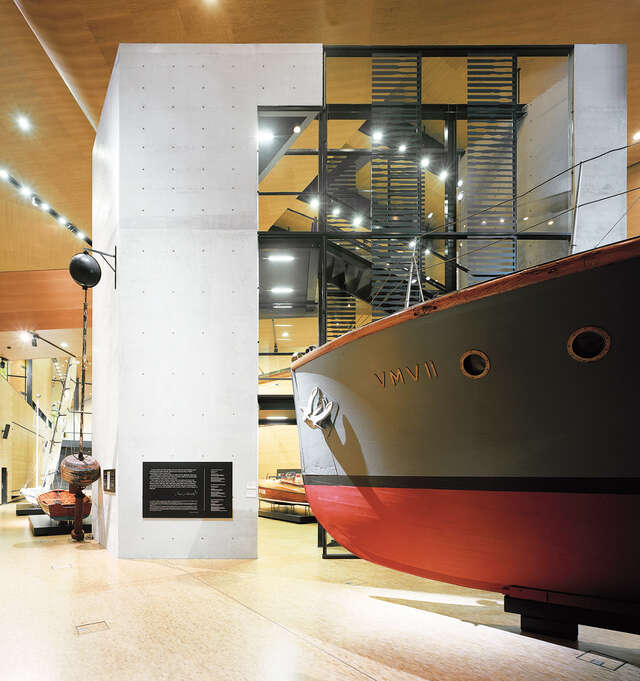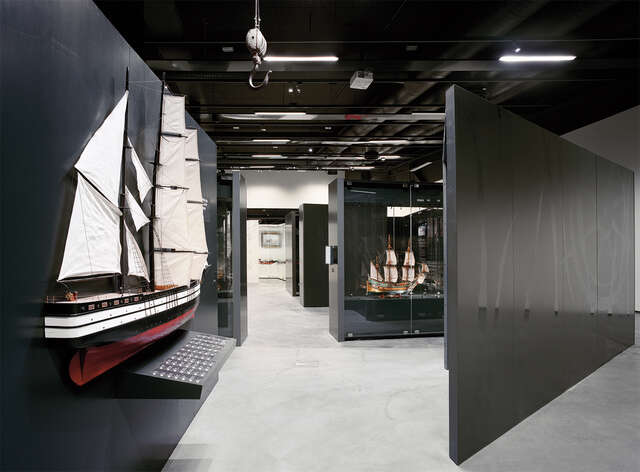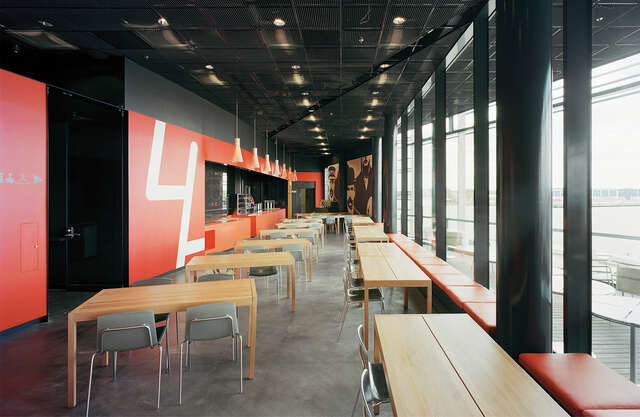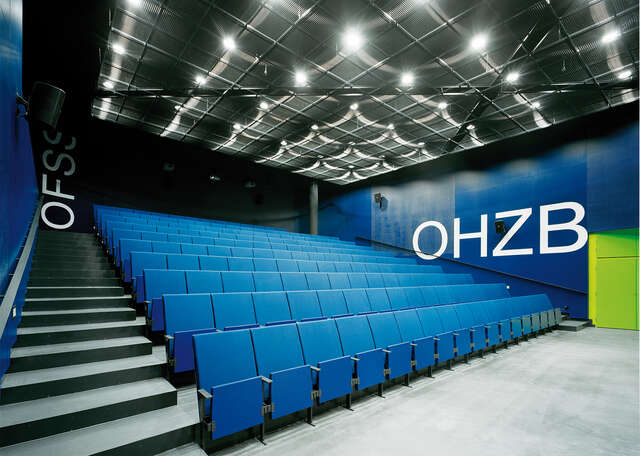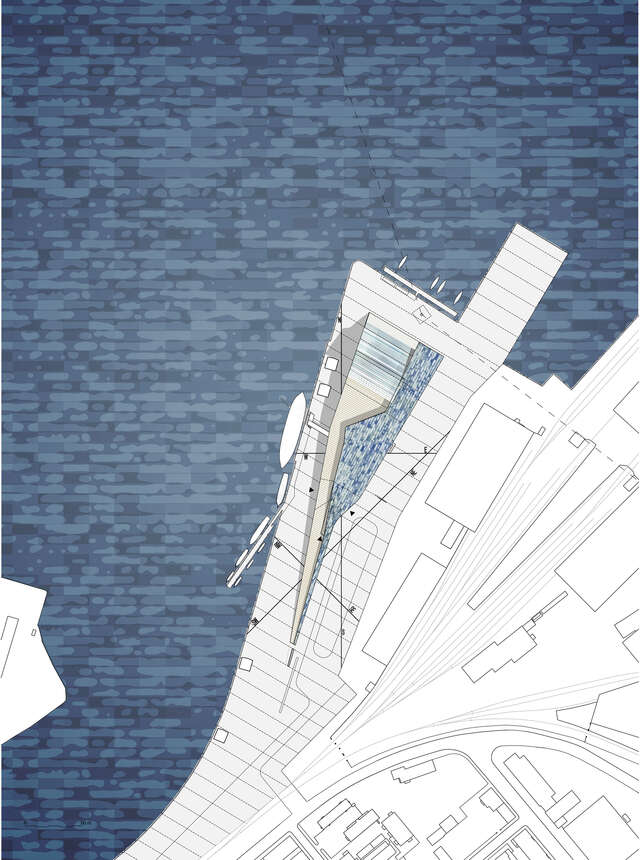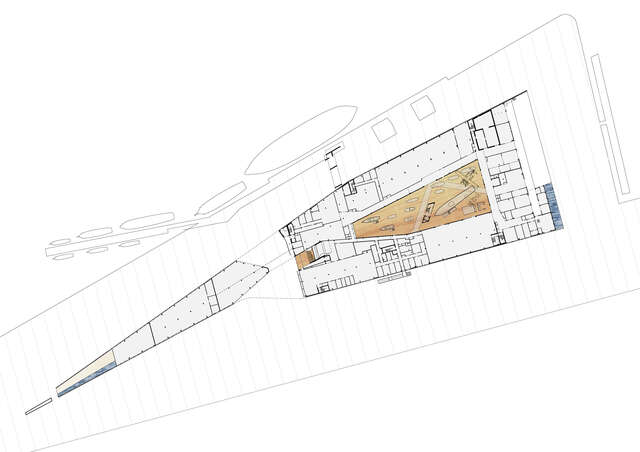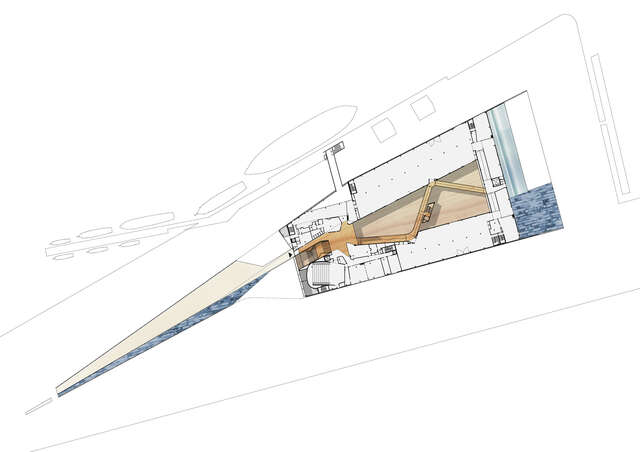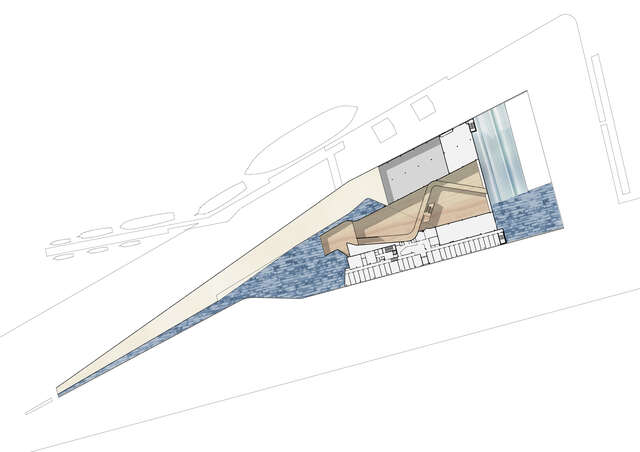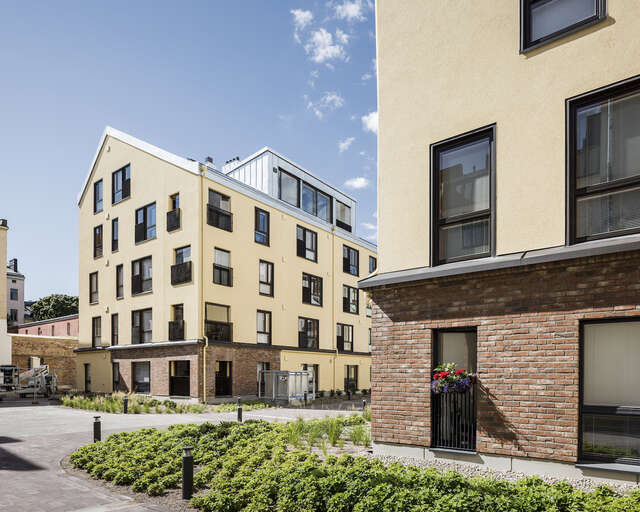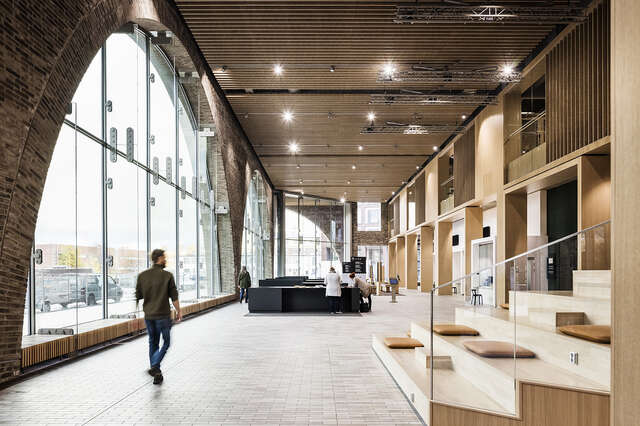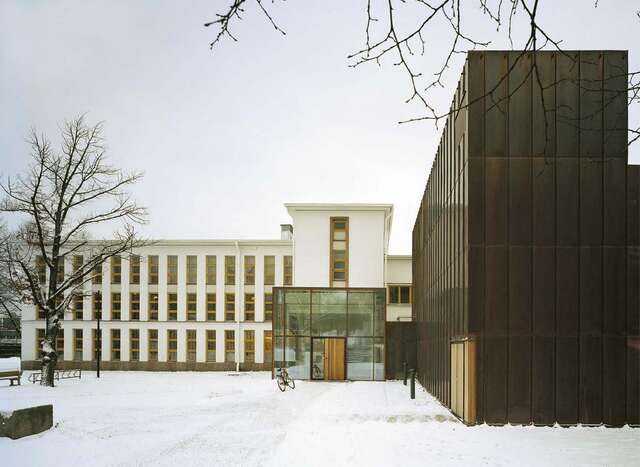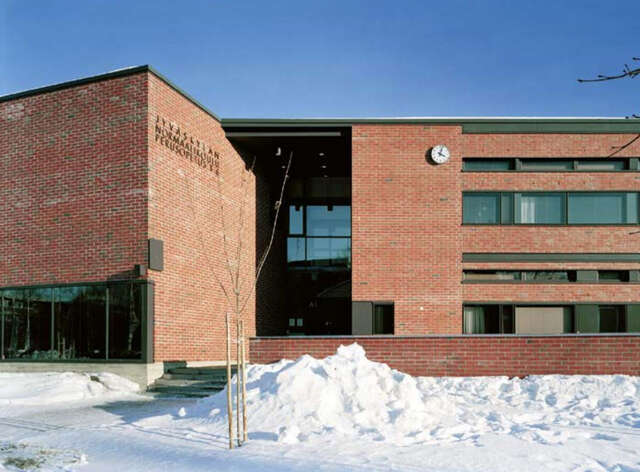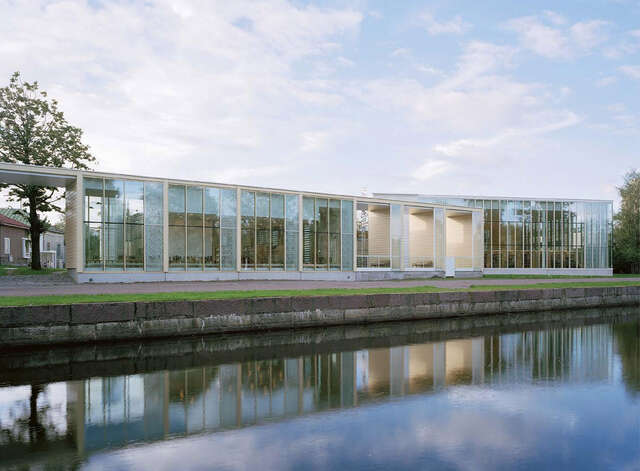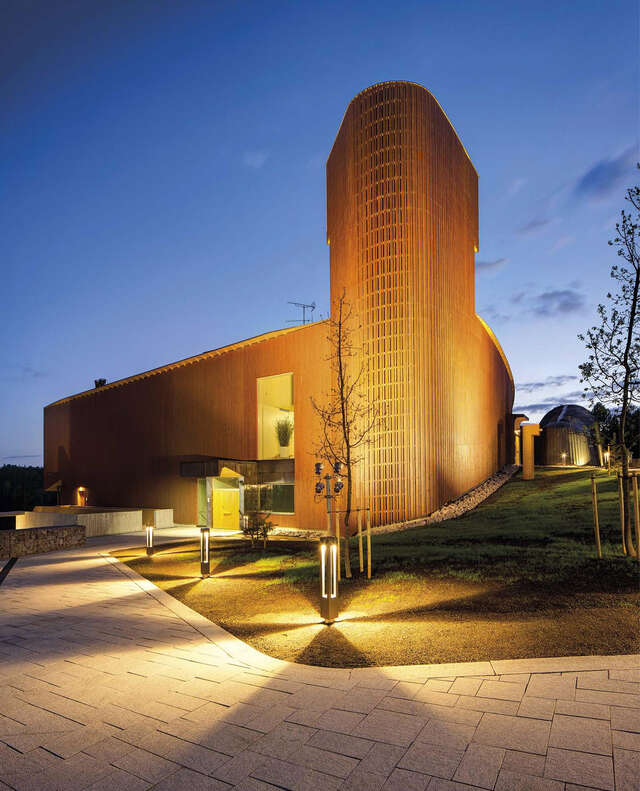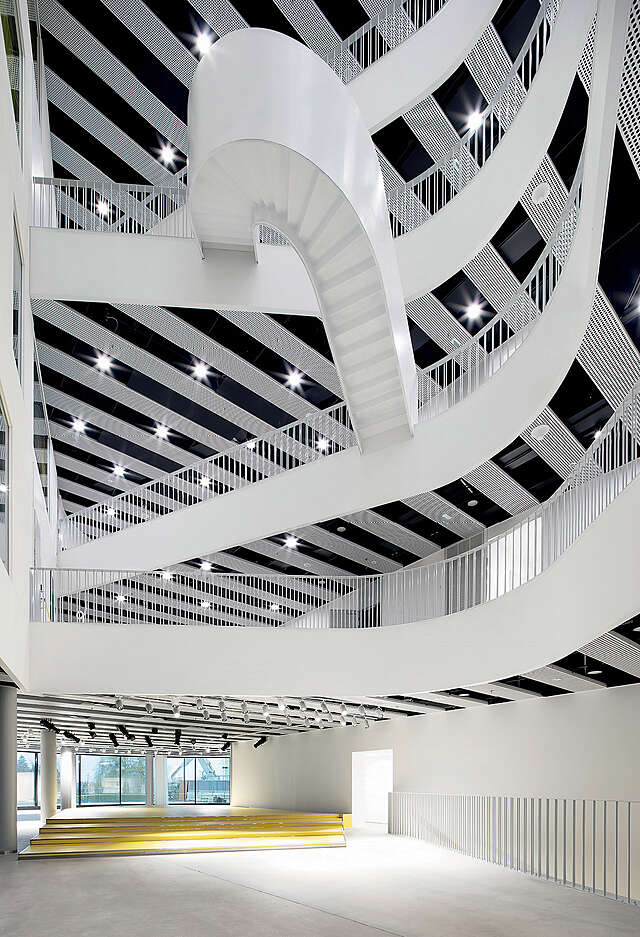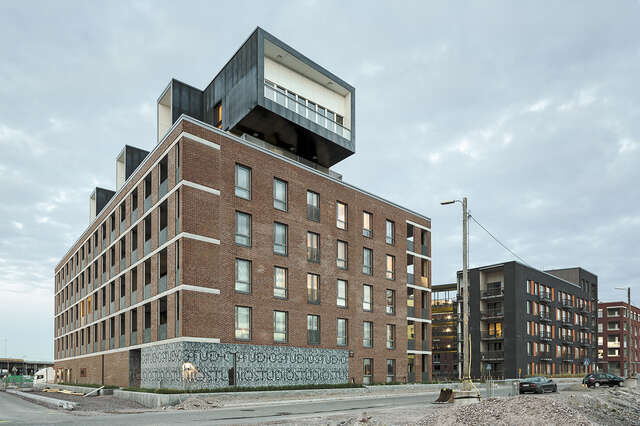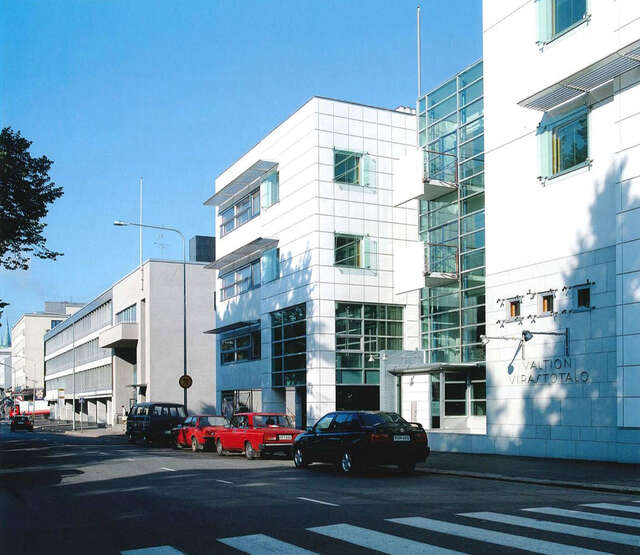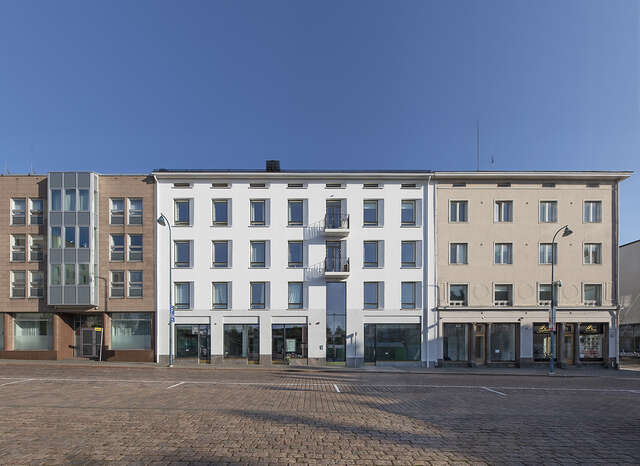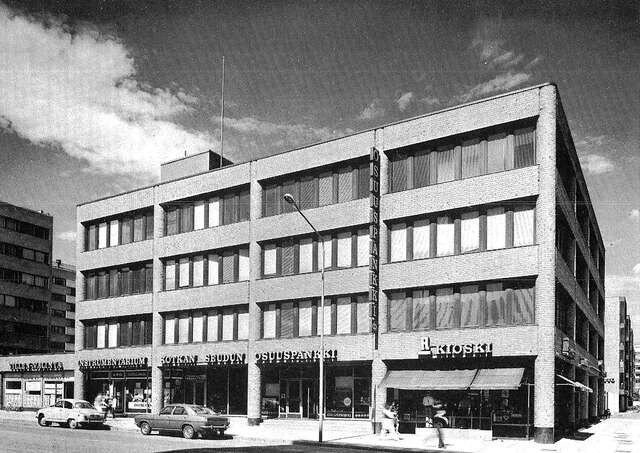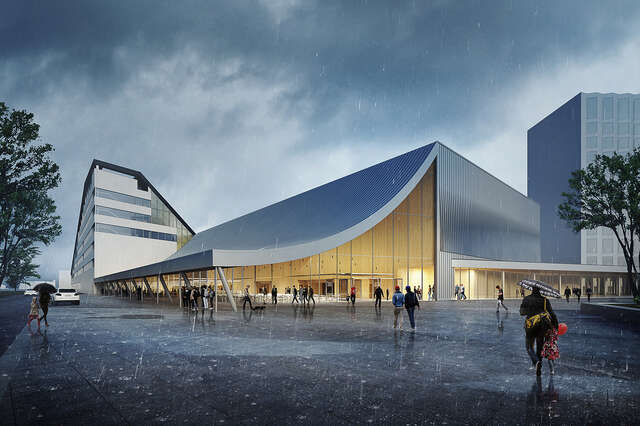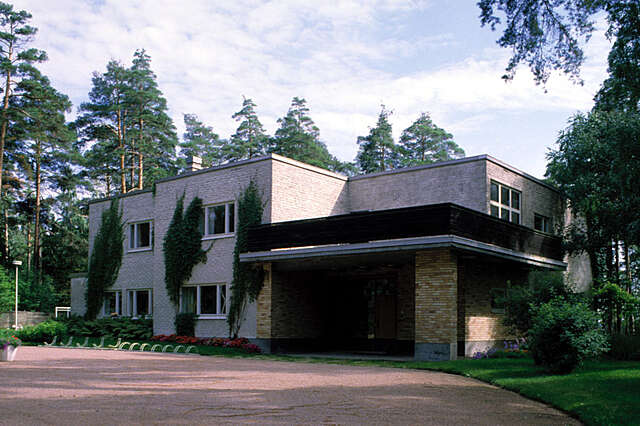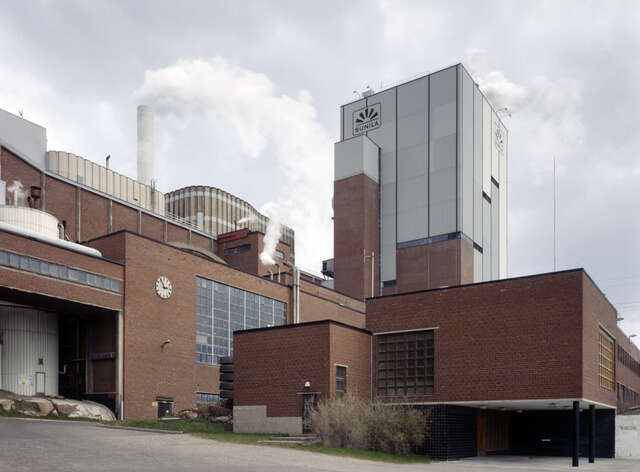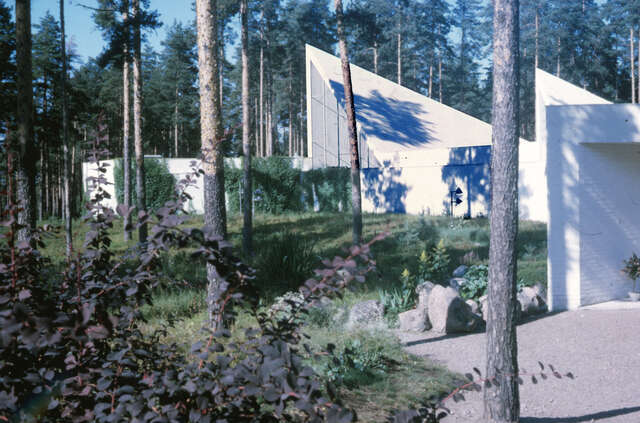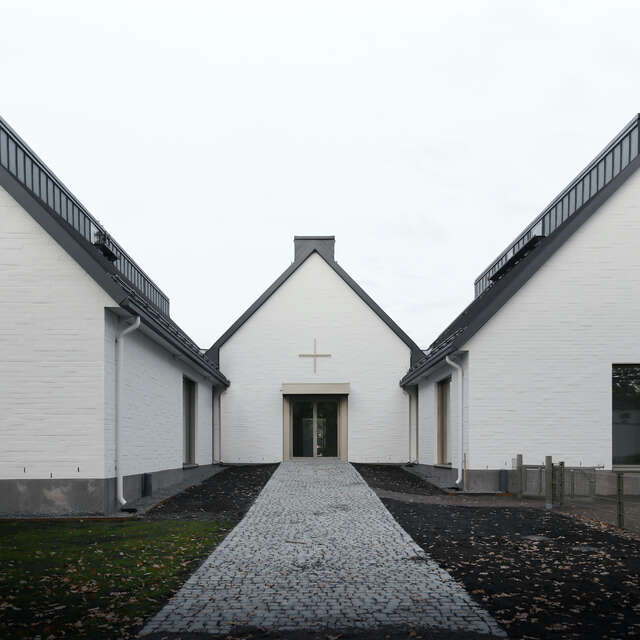Maritime Centre Vellamo
Vellamo stands out in the port of Kotka with its wave-inspired form and spacious exhibition areas shared by two museums.
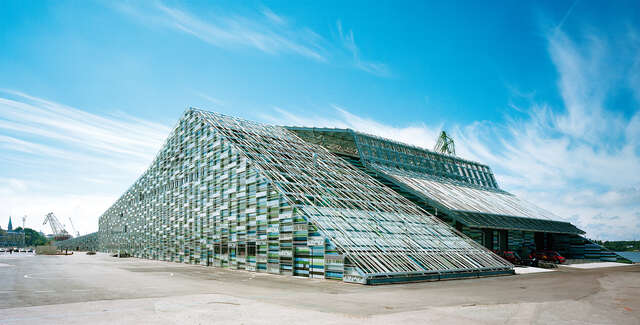
Katsushika Hokusai's woodcut The Great Wave of Kanakawa is what comes to mind when one approaches the Maritime Centre Vellamo. This Ukiyo-e work is dominated by a majestic wave suggesting irresistible power and motion. Mount Fuji can be seen in the background. Vellamo rises before me like a stunning piece of sculpture – evoking images of ships, the dynamics of the sea, and the mythical creatures living n its depths. The flanks of this creation reflect green and turquoise in an attempt to outshine the glimmering Baltic Sea. It rises as a unique and stately structure amidst the precisely lined-up containers and asphalt-paved fields covered by rows of glistering new cars.
Vellamo, nee Surge, is an outcome of an open architectural design competition held in 2005. The completed building has successfully retained the spirit of the competition entry. In the series of significant cultural buildings by Ilmari Lahdelma, this is propably his most important creation to date while providing an advance glimpse of the interior architecture of the Museum of the History of Polish Jews in Warsaw also designed by Lahdelma. The form, series of spaces defined by free geometry and inventive use of colours and graphics are all elements familiar from the earlier works of Architects Lahdelma & Mahlamäki Oy. Even so, Vellamo is something new and unique.
Access to Maritime Centre is from the busy port. At the entrance, the upward-reaching mass is bent so as to make it approachable both from the see and port sides. Grand oak stairs lead from the main entrance up to the lobby that offers the first view of the central exhibition area. One´s interest is duly awakened.
Another way of entering the 300-metre long building is provided via the roof that is in active use and open to the public. The deck offers a third access to the lobby level, by far the most grandiose form of entry and something that could have been brought to the fore more effectively.
Vellamo's central space serves as an example of the interplay between the various parties operating in the premises. This architectonically impressive boat hall is an exhibition area shared by the Maritime Museum of Finland and the Provincal Museum of Kymenlaakso. At the high end of the area , the 17-metre-high ceiling makes it possible to put exceptionally large objects on display. An opportunity is provided to view this remarkable space from different directions as access to the exhibition area via bridges cutting across the space at an angle.
The actual exhibition area of the Maritime Museum of Finland has been implemented on the ”black box” principle. It is a highly functional solution allowing the exhibition items with their fascinating stories to take centre stage.
A splendid idea on the part of the designers was to restrict the powerful , dominant form of the central space. Little natural light is provided in the exhibition area – a carefully thought-out solution due to the sensitive nature of the exhibits. The few spots in the interior that do offer a view to the sea have been located in the right places.
Despite Vellamo's impressiveness, it leaves a couple of lingering questions. Would it have been possible to retain the magic power of the façade even when viewed closer? Now the impression of rippling water is reduced to a feeble construction of painted steel sheeting, aluminium and silk-screen patterns when seen close up. And could the wave on the sea side have culminated in something more than service yard?
The maritime Centre has already brought new life to the Port of Kotka. In Finnish mythology, Vellamo is mermaid and siren who charms and attracts people. The Maritime Centre Vellamo has duly lived up to its name – during the first two weeks it drew over 20 000 visitors. Could this become a local Bilbao phenomenon for the townspeople of Kotka?
Building review by Mikko Summanen published in the Finnish Architectural Review 4/2008.
Location
Tornatorintie 99, Kotka
Get directionsGallery
